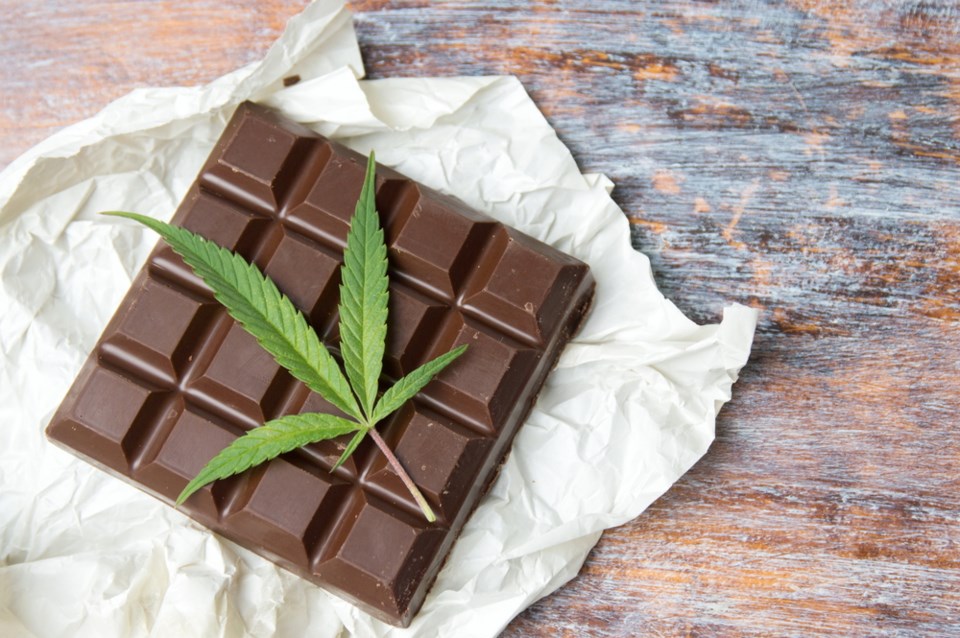Dispensaries across Ontario were given the 'green' light on three new varieties of cannabis products in December, giving patrons a new smoke-free alternative to the dried flower legalized in 2018.
Cannabis 2.0 products, which are edibles, topicals and extracts, were legalized Oct. 17, 2019. Although it wasn't until Dec. 13, 2019, that dispensaries were able to order the products from licensed producers.
For stores such as Sudbury's Canna Cabana, which generally receive their shipments after those in Southern Ontario, that meant products didn't reach the shelves until early-January. Their first shipment came on Jan. 10 said Erik Snow, Canna Cabana general manager, but this is just a taste of the variety to come.
The first order included a little bit of everything, he said, which for their edible selection meant chocolate bars, gummies, cookies and mints. The list also included extracts, which are cannabis concentrates diluted in carrier oils to be sold as an individual cartridge, or disposable vape pen.
What the store has yet to receive are topicals, for hair, skin or nails, but Snow said there is an alternative for those looking to try something new.
Since opening in 2019, Sudbury's Canna Cabana has offered a cannabis-infused sexual enhancement product known as Foria.
Ingestable soft-gel capsules have also been offered since legalization, he said, and contain the same concentrate used in edibles. The difference with this concentrate and that being released as part of Cannabis 2.0, is that the contents of soft-gel capsules can't be smoked.
Both the gel capsules and gummies are vegan.
Edible cannabis products are food and drink that have been infused with cannabis extracts or concentrates, containing tetrahydrocannabinol (THC) and cannabidiol (CBD). The main difference between edibles and other cannabis products is how the body processes the active ingredients, which can drastically change how the product is experienced.
According to the Ontario Cannabis Retail Corporation, when cannabis flower or concentrate is inhaled, its active ingredients are absorbed by the blood in the lungs and travel to the brain. This form of consumption is said to produce an almost immediate effect and can last six hours or more.
The active ingredients in edibles, on the other hand, are absorbed into the body through the digestive tracts, enter the bloodstream and eventually arrive at the liver. At that point, the active ingredients are metabolized and released back into the bloodstream, where they enter the brain and the rest of the central nervous system.
Edibles can take between 30 minutes and four hours to produce the desired effect and can last 12 hours or more, said the Canadian Centre on Substance Use and Addiction.
But as is the case with any cannabis products, the intensity and longevity of the effects will depend on the individual's weight, gender and metabolism, among other things.
More products will be released as licensed producers are approved through the Ontario Cannabis Retail Corporation, said Snow. But as to when cannabis products such as hashish or shatter (smokable cannabis extracts) will be approved, he couldn't say.
"I would imagine that eventually, all cannabis products will be available the same way all alcohol products are available," said Snow. "I wouldn't understand a half-measure approach to this ... it's a cultural movement now."
Until that time, Snow said Canna Cabana is proud to be a one-stop-shop for people looking to produce a wide spectrum of cannabis products. It can be a great option for people looking to avoid solvents or chemicals, said Snow, but some processes are more dangerous than others.
While the dispensary itself was not required to apply for an additional license or make significant changes to accommodate 2.0 products, Snow said all sales associates had to update their CannSell certification to handle and discuss the new line. This included training on the conversion, effects and properties of this new product.
Sales associated are still not legally permitted to discuss any medical concerns with customers or make any health-related recommendations, he said.
Edibles are sold according to the milligrams of THC, rather than a percentage, as is the case for dried flower, which can make it tricky to find the product right for you. But don't worry, Canna Cabana's cannabis-experts are there to help.
There is no accurate way to convert a dried flower THC-percentage to milligrams, said Snow, which is why people are encouraged to begin at a low dose of 2.5 mg.
"It feels totally different," he said. "Even if you are someone who could potentially have a super high tolerance to smokable cannabis, you could have an edible and have a super low metabolism rate and it hits you hard."
The maximum amount of Cannabis 2.0 products that can be purchased at one time is as follows:
- Edibles - 10 mg of THC in a single package
- Extracts - 1000 mg of THC per package of inhaled product, or 10 mg of THC in a single ingestable unit
- Topicals - 1000 mg of THC concentration per package
– Sudbury.com
